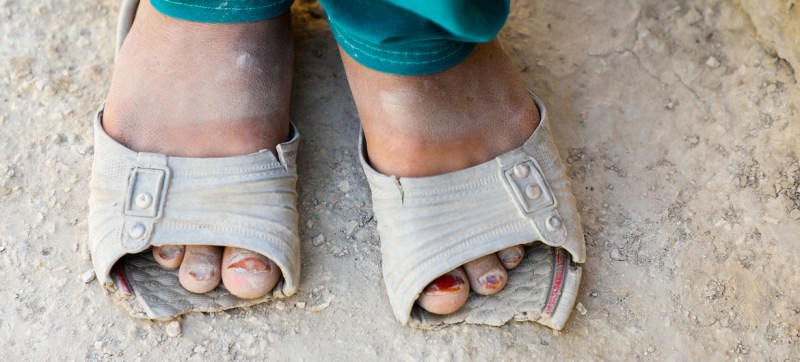 COVID19
COVID19 COVID pushes millions more children deeper into poverty, new study finds
New York: The coronavirus pandemic has pushed an additional 150 million children into multidimensional poverty – deprived of education, health, housing, nutrition, sanitation or water – a new UN study has found.
Globally, the number of children living in poverty soared to nearly 1.2 billion – a 15 per cent increase since the pandemic hit earlier this year, according to a technical note on impact of COVID-19 on child poverty, issued on Thursday by the UN Children’s Fund (UNICEF) and the NGO Save the Children.
Although the analysis paints a dire picture already, UNICEF warns the situation will likely worsen in the months to come.
“COVID-19 and the lockdown measures imposed to prevent its spread have pushed millions of children deeper into poverty,” said Henrietta Fore, UNICEF Executive Director.
“Families on the cusp of escaping poverty have been pulled back in, while others are experiencing levels of deprivation they have never seen before. Most concerningly, we are closer to the beginning of this crisis than its end.”
Child poverty ‘much more’ than a monetary value.
UNICEF Video | What is multidimensional child poverty?
The study – based on data on access to education, healthcare, housing, nutrition, sanitation and water from more than 70 countries – also finds that around 45 per cent of children were “severely deprived” of at least one of the critical needs in the countries analyzed before the pandemic.
It notes that child poverty is much more than a monetary value, and while measures of monetary poverty such as household income are important, they provide only a partial view of the plight of children living in poverty.
To understand the full extent of child poverty, all potential, multidimensional, deprivations must be analyzed directly, the study adds, highlighting the need for social protection, inclusive fiscal policies, investments in social services, and employment and labour market interventions to support families and preventing further devastation.
“This pandemic has already caused the biggest global education emergency in history, and the increase in poverty will make it very hard for the most vulnerable children and their families to make up for the loss”, said Inger Ashing, CEO of Save the Children.
“Children who lose out on education are more likely to be forced into child labour or early marriage and be trapped in a cycle of poverty for years to come. We cannot afford to let a whole generation of children become victims of this pandemic. National governments and the international community must step up to soften the blow.”
Worsening inequalities
The study also finds that not only are more children experiencing poverty than before, the poorest children are getting poorer as well. Some children may suffer one or more deprivations and others experience none at all, therefore the average number of deprivations suffered per child can be used to assess how poor children are.
Before the pandemic, the average number of severe deprivations per child was around 0.7. It is now estimated to have increased by 15 per cent to around 0.85, it notes.
Against this backdrop, governments must prioritize the most marginalized children and their families, underscored Ms. Fore, calling for rapid expansion of social protection systems including cash transfers and child benefits, remote learning opportunities, healthcare services and school feeding.
“Making these critical investments now can help countries to prepare for future shocks.”
Support Our Journalism
We cannot do without you.. your contribution supports unbiased journalism
IBNS is not driven by any ism- not wokeism, not racism, not skewed secularism, not hyper right-wing or left liberal ideals, nor by any hardline religious beliefs or hyper nationalism. We want to serve you good old objective news, as they are. We do not judge or preach. We let people decide for themselves. We only try to present factual and well-sourced news.







